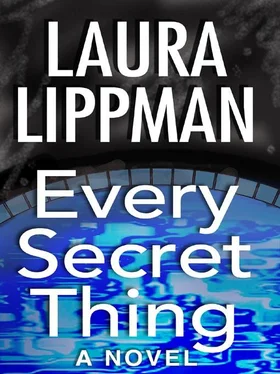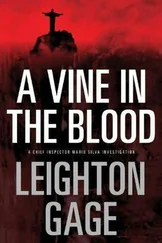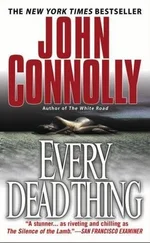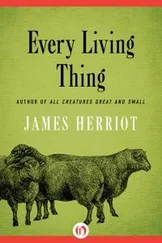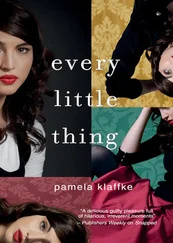Mira hung up the phone and let out a little yelp of triumph, wishing she had a colleague to high-five. Then she composed herself before leaving the advertising director’s office.
“What were you doing in there?” the cop reporter asked.
“Talking to a doctor about why my hands are so cold all time. He’s going to do some tests.”
“Fuck,” Nancy said after hanging up the pay phone in a back corridor at Value City. “Jesus, Joseph, and Mary and fuck me.”
“What’s up?” Infante asked, coming out of the bathroom. He had a copy of the Pennysaver under his arm, a fact Nancy would have found hilarious in normal circumstances.
“A reporter is chasing the story.”
“Well, sure. They been chasing it.”
“Only she knows . She knows about the girls, has their names. She says I confirmed it by not contradicting it. But I didn’t, did I? You heard my end? Did I say anything?
“I didn’t hear anything, Nancy. I was in the can.”
“Damn it.” It was going to happen again. She was going to be in the paper, and other police would think it was because she was showboating, still desperate for attention. No one would believe she had changed, and she would have to live with it this time. She had run out of room, she had no place else to go, except over the state line to Pennsylvania.
“It might not be so bad,” Infante said, which convinced Nancy it was very bad indeed.
She leaned her forehead against the edge of the fake wood partition for the pay phone. They were in a dingy corridor on the top floor of Value City. Nancy remembered when a bakery used to occupy this space, back when Value City was Hutzler’s, the city’s grandest department store. Her mother had come here to buy Nancy’s first communion dress and then, to reward her for not fidgeting, had brought her to the bakery to pick out any treat she wanted. Nancy had chosen a strawberry cupcake, its pink frosting chunky with pieces of berry. Probably made from jam, she realized now. But at eleven she had believed it was the real thing.
“Let’s go do what we came here to do,” she said. “I’ll worry about this later.”
They made a circuit of the store, studying the placement of the cameras. The numbers matched-there were seven cameras in all, and the mall had sent them seven tapes. They left the store, entering a glassed-in corridor of smaller shops. Nancy stopped, did a double take.
“What?” Infante asked as she crouched down.
“Here,” she said. Three little bolts, almost impossible to see in the dirty gray carpet, but Nancy’s eyes had found them. They looked lost, meaningless, unconnected to this sunny, dusty column of light-until their eyes traveled up the wall, about eight feet. And then it was almost too easy to connect the bolts to the not quite spackled-over holes in the wall.
Infante stood on tiptoe and pressed a finger against the white swirl of Spackle. There was a small freckle of white when he took his finger away.
“Fucking Lenhardt,” Infante said. “He’s scary sometimes.”
“Yeah,” Nancy agreed. “This is a case about what’s not there. But how could he know that the camera was removed?”
The corridor had doors to the parking lot and an enclosed staircase that led to a parking garage below this strange addition, an attempt to create a mall out of what had once been a traditional shopping center. Nancy and Infante walked the corridor once, twice, three times, then began going up and down the stairs. Nancy was walking up the stairs when she saw the glint of something gold. An earring.
“Didn’t Brittany Little have pierced ears?” She was thinking of the photo, the curly hair slicked behind two shell-perfect ears. She was pretty sure the girl had been wearing earrings.
“Maybe. But how can you tell one ball stud from another?”
“I don’t know. Maybe ears have DNA. Maybe the mom can make an ID.” She sealed it in a baggie, just in case. “Let’s go talk to the head of security.”
The guy was a rent-a-cop, anyone could tell. Fifty-something, short gray hair, a florid face, at least three hundred pounds. Bernard Carnahan.
“You gotta understand,” he said, his tone apologetic now that he was caught. “It wasn’t my call. Mall management says it’s all about liability. The camera malfunctioned. Tape’s nothing but snow. We can get sued for that. But we can’t get sued for not having a camera. That’s how it was explained to me. So we gave you what we had, and didn’t give you what we didn’t have. No harm, no foul.”
Nancy suddenly realized she could raise just one eyebrow, so she did.
“No harm?” Infante sputtered. “If we had known there was a malfunctioning camera at the exit, we would have spent more time in that part of the mall. We just found what could be the girl’s earring-which, if it is, confirms the mom’s story. She was here and someone took her out. We would have liked to know that four days ago.”
Carnahan shrugged. “So, what, now that you got an earring, you got it all figured out?” The detectives had no answer for that. “Look, I’m sorry. I did what my boss told me to do. It didn’t seem like a big deal to me. It still doesn’t.”
The detectives left his office. Everyone lies, Nancy reminded herself. It was a rule of police work. The sheer volume of lies in the world on any given day was staggering. The mall management lied about the camera because they feared a lawsuit. The mother lied about how long she turned her back on her daughter because she didn’t want the cops to think she was a bad mother. Alice Manning was lying, too. About what, and to what purpose, Nancy didn’t know. But the girl was definitely lying, and had been from the start.
Ronnie Fuller-Ronnie Fuller, she wasn’t so sure about.
“You feel like a bagel?” she asked Infante.
“Yeah,” he said, getting it. “I definitely feel like a bagel. I feel big and round and chewy, and I want someone to slather me with cream cheese.”
The one thing that Ronnie Fuller had known cold the first day of kindergarten was her alphabet. Other things came harder-blowing her nose, tying her shoes, playing well with others-but she had memorized the ABCs because she had a little board with magnetic letters in various colors, passed down from her brothers. The arrangement of the colors was mysterious to her, something that hinted at an internal logic that Ronnie could not quite figure out. A through F were light, light blue. G through L were orange. Then came M through R, Christmas red, S through W, grass green, and finally X-Y-Z, blacker than black.
Ronnie decided the letters were like groups of friends. If she had known the word cliques at six, she might have used that. The pale blue bunch had the coolness of those who always got to go first, while the middle letters wore bright colors to get attention. She was most troubled by the placement of her own initial, R, at the end of the red group. Because R had to stand next to Q, and anyone could see that Q was odd, sort of retarded, a letter that couldn’t make a word without U around to help. Yet Q stood between P and R, as if R wasn’t good enough to be P ’s friend. Q was like one of those fat girls who stood next to a pretty girl, shooing everyone else away. But R couldn’t be with S, T, U, V, W because they were green. It was all very disturbing.
She was thinking about her old alphabet board as she picked through the white letters that needed to be arranged on the marquee, announcing the next day’s specials. Wednesday was Pizza Bagel day-an open-face bagel with a fountain drink and a bag of chips for $3.99.
Читать дальше
